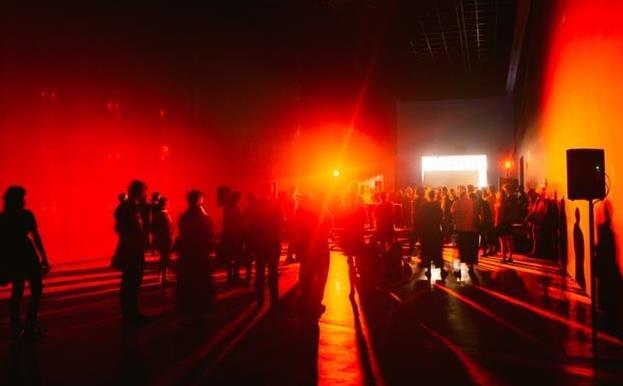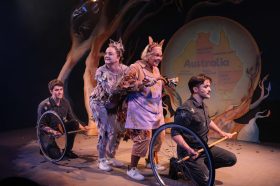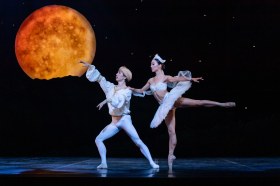Lurking behind the inspiring artwork and flashy cachet of an arts organisations is the serious work of governance. Nothing could be less sexy yet more essential to the health of Australia’s not-for-profit arts sector.
Members of boards and management committees of arts organisations come from a wide variety of backgrounds and experiences – from the education and arts sectors, through to accounting, law, HR and marketing. What they all share is that they volunteer their time and expertise in support of the art and artists they love.
As Chair of Melbourne-based Liquid Architecture – like hundreds of my peers across the country – I am currently navigating the fallout of the Australia Council’s recent decision to defund 49 arts organisations. Suffice to say, it’s not fun.
Managing a small arts organisation is a challenge at the best of times, but doing it after losing substantial operational funding is like being set adrift on a lifeboat with limited supplies, surrounded by choppy seas as far as the eye can see. It’s a special kind of trauma only those with lived experience can understand, and I wouldn’t wish it on anyone.
Off the back of COVID-19, the timing of the Australia Council’s recent four-year funding announcement couldn’t have been worse. Adam Wheeler, Artistic Director of Launceston-based Tasdance, described the confluence of COVID-19 and the loss of Australia Council funding as ‘two giant waves colliding’. It’s a sentiment shared by Jessica Olivieri, Artistic Director of Sydney-based Urban Theatre Projects, who called the current scenario ‘one big ball of crisis’.
Feeling the impact
Urban Theatre Projects (UTP) is one of Western Sydney’s largest and most important artistic players, creating original performance works for the region’s most vulnerable communities for almost 40 years. Annual operational funding from the Australia Council underwrites half of UTP’s core expenses, and the impending loss of this funding is something Olivieri says the company is ‘still getting its head around’.
Exacerbating matters, the shifting sands of government policy in response to COVID-19 make ‘coming up with a firm plan impossible’ said Olivieri, ‘any plan B we had is quickly replaced with plans C, D and E’. It’s a viewpoint echoed by Tasdance Chair, Peter Matthews, who said, ‘The arts are so volatile, until you get the call, there’s no point in having a plan B. It’s a wasted effort’. Matthews said Tasdance had been ‘cautiously optimistic’ about securing continued funding from the Australia Council, but acknowledged that ‘every funding round is a raffle’.
And while Tasdance may have been ‘cautiously optimistic’, Nick Linke, Chair of Adelaide-based Restless Dance Theatre, admits the loss of their Australia Council funding ‘blindsided’ the company. ‘In many ways, we had never been more successful. We were doing lots of international touring, and our Artistic Director, Michelle Ryan, had just won an Australia Council Award which acknowledged her outstanding contribution to the Australian dance sector’. Indeed, the Australia Council’s own website notes that ‘as Artistic Director of Restless, Michelle has grown the scope of audience engagement, touring works nationally and internationally’.
Linke described operational support from the Australia Council as ‘absolutely essential’, representing just over half of Restless’ funding base. When combined with the impact of COVID-19, Linke said the company is in ‘an invidious position’ and that the situation had ‘taken the guts out of the plans we had’.
Boards leading through crisis
With so much in flux and so much at stake, it can be hard for boards to know what to prioritise or where to begin the recovery process. According to UTP’s Chair, Rob Lang, ‘retaining as many staff as we can, for as long as we can, is our first priority, but after the negative impact of the bushfires and COVID-19, it’s a tough call’. UTP now has less money to spend on wages, though according to Olivieri, staff are doing ‘even more work’ trying to find alternative sources of funding for the company. ‘Projects and programs are scalable,’ Olivieri said, ‘but the [core] team are essential workers.’
For Tasdance, ‘The art comes first,’ according to Matthews. ‘Everything else flows from that.’ Like its peers, Tasdance is now revising the scope, scale, and timing of its artistic program. And while technology cannot fully replace the dance experience (Wheeler reminds me that ‘dancers need to be physically together in studios’), the company has just launched online dance classes, attracting over a hundred attendees from across the state. It’s a small good-news story in an otherwise stressful landscape. ‘These classes are free,’ said Alison Copley, Tasdance’s General Manager. ‘As the state’s only professional dance company, we consider initiatives like these to be part of our contribution to the Tasmanian community, especially during this lockdown.’
Of course, it should be noted that in an unexpected decision that delayed the funding announcement, the Australia Council offered transition funding for 2021 (at 70% of current funding levels) to the 49 unsuccessful organisations. And while this buys organisations a little time, as Linke says, ‘to hatch a plan’, none of the organisations I spoke with currently know what they will do with their transition funding.
This is not for lack of strategic capacity – and there has certainly been a flurry of emergency board and management meetings over the past few weeks – but, at this stage, there are simply too many unknown factors, including state government funding and easing of pandemic-related restrictions, to make a concrete plan for transitional funding possible.
Linke believes there is a ‘slow and measured’ way forward and that, while Restless staff are currently ‘shattered’, he characterises them as ‘strong and resilient’. The team at Restless is ‘working on a plan to survive, then thrive’. Lang agrees, saying ‘It’s important for boards to stay positive. Right now, staff are depressed, but it’s up to the Board to remind them that they will do everything in their power to help’. But surely this is a delicate balancing act? Boards also need to acknowledge the pain staff are feeling, and grieve with them, before moving on.
The post-pandemic future
Staff or board, none of us know just how bad the economy will crash in the coming months. And we don’t know exactly when Australia’s arts venues will re-open, or what it will take to lure audiences out of their post-pandemic trauma when they do. But one thing is clear. There is no going back to the way it was before.
Replacing the level of funding previously granted by the Australia Council is simply not practical in an environment where the philanthropic and corporate sectors are tapped out by a perfect storm of climate-change induced bushfires, a global pandemic, and freefalling stock markets.
If there is any silver lining to the current situation – and it would take a preposterous dose of rose-tinted resilience to see it right now – it’s that the arts sector has a short period of time to reflect; to take stock of what is important, why it matters, how we are going to operate in the ‘new world’, and what we need to do so. ‘This is an opportunity to look at the bigger picture,’ said Lang. ‘The arts sector has such an important role to play here but we’re not able to play it. It’s so frustrating.’
The irony is not lost on me, nor on my colleagues working at, with, and for, those arts organisations who have just lost their Australia Council funding. Right now, we’re all clinging to a lifeboat in the face of abominably rough seas. Together, may we be the rising tide that floats all boats and takes us safely to shore.





